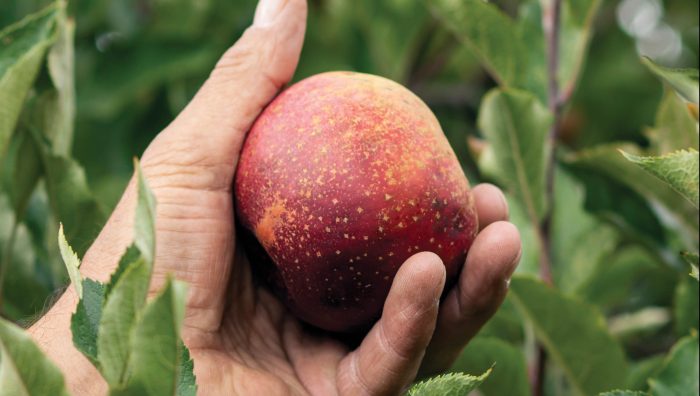Applications for Ohio Farm Bureau Health Plans now available
Members have three ways to apply: contacting a certified agent, calling 833-468-4280 or visiting ohiofarmbureauhealthplans.org.
Read More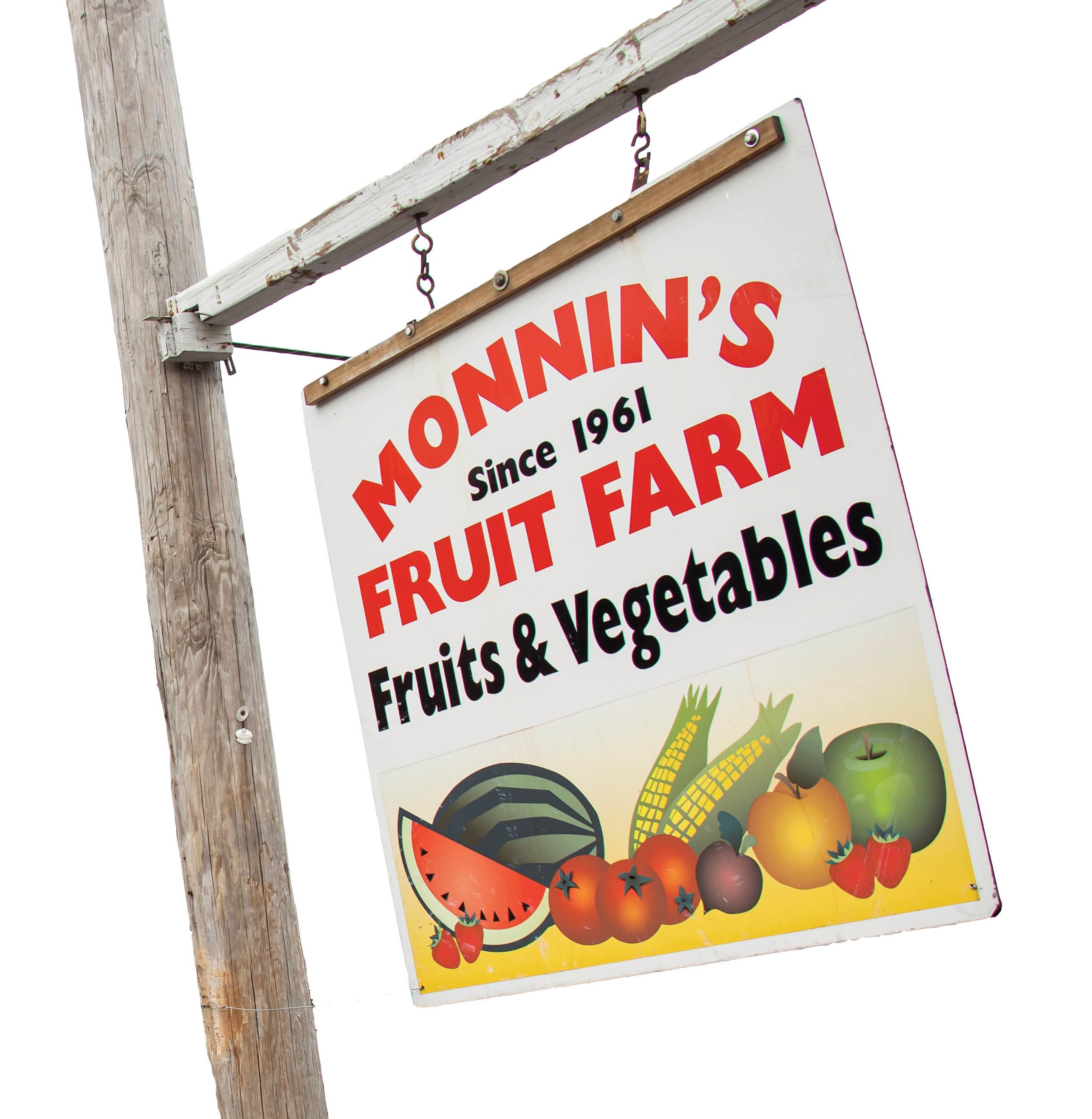 Nostalgia and trendy share shelf space at the family-run Monnin’s Fruit Farm about 10 minutes from downtown Dayton.
Nostalgia and trendy share shelf space at the family-run Monnin’s Fruit Farm about 10 minutes from downtown Dayton.
Antique cash registers used in the farm store’s first years, trays of hydroponic lettuce grown in nearby Vandalia, FreshStart Farm organic dairy products from Jackson Center, plus Amish produce and baked goods are among staples. Monnin’s Fruit Farm Market serves as a gateway to about 30 acres of u-pick strawberries, apples, peaches, grapes and pumpkins.
The diversity of offerings, local focus and willingness to shoulder the load of long days of often hard work is a winning combination. It enabled Monnin’s to handle challenges wrought not only by nature and consumer tastes over the decades, but also the pandemic. Once it was cleared to open in April, its biggest coronavirus problem was crowd control.
When the first weeks of the COVID-19 shutdown cleared supermarket shelves, shoppers flocked to the homespun market, just north of Interstate 70. Social distancing in the small store became a concern, said Glenn Monnin. He and his brother Nick, and sisters Kathy Groves and Connie Carlson, operate the farm and store started in 1961 by their late parents, Roger and Phyllis Monnin.

“We’ve had hardly any problems with people wearing masks,” said Glenn, a Montgomery County Farm Bureau member. People generally waited outside until space cleared. The store also added curbside pickup for call-ahead orders.
Theirs wasn’t the only produce farm facing unprecedented demand.
“It was a boom for us,” said Cathy Pullins, who operates Champaign Berry Farm with her husband, Mike, near Urbana. She serves as president of the Ohio Produce Growers & Marketers Association. “It’s been my understanding that most of the fruit growers have had a very positive response to their businesses this year.”
But always capricious nature lobbed a devastating hit to Monnin’s crops in mid-May — a stretch of arctic chill that froze most of the strawberries, black raspberries and apples for the u-pick season.
Freezes, unlike COVID-19, are periodic hazards.
In the early days, all seven of the children of Phyllis and Roger, plus numerous cousins, helped with the diverse, year-round chores of fruit production and retail.
This included running an irrigation system to spray the trees to form a protective layer of ice when a spring freeze threatened blossoms. It’s the same approach citrus growers employ in Florida cold snaps. The family’s used tractor, which sometimes needed hand cranking to start on those dark, freezing mornings, ran an auxiliary pump as part of the process. Today that 1948 John Deere Model M sits fully restored to gleaming running order in a front corner of the store.
The Monnins typically work 10 to 12 hours daily during the store’s April through November season. Even before the store’s annual closing, pruning starts on the main crops of 1,100 apple (22 varieties) and 450 peach trees. There are 3½ acre of strawberries and 3 acres of black raspberries. Other crops include grapes, pears and pumpkins. Each crop has unique growing requirements and pest management issues.
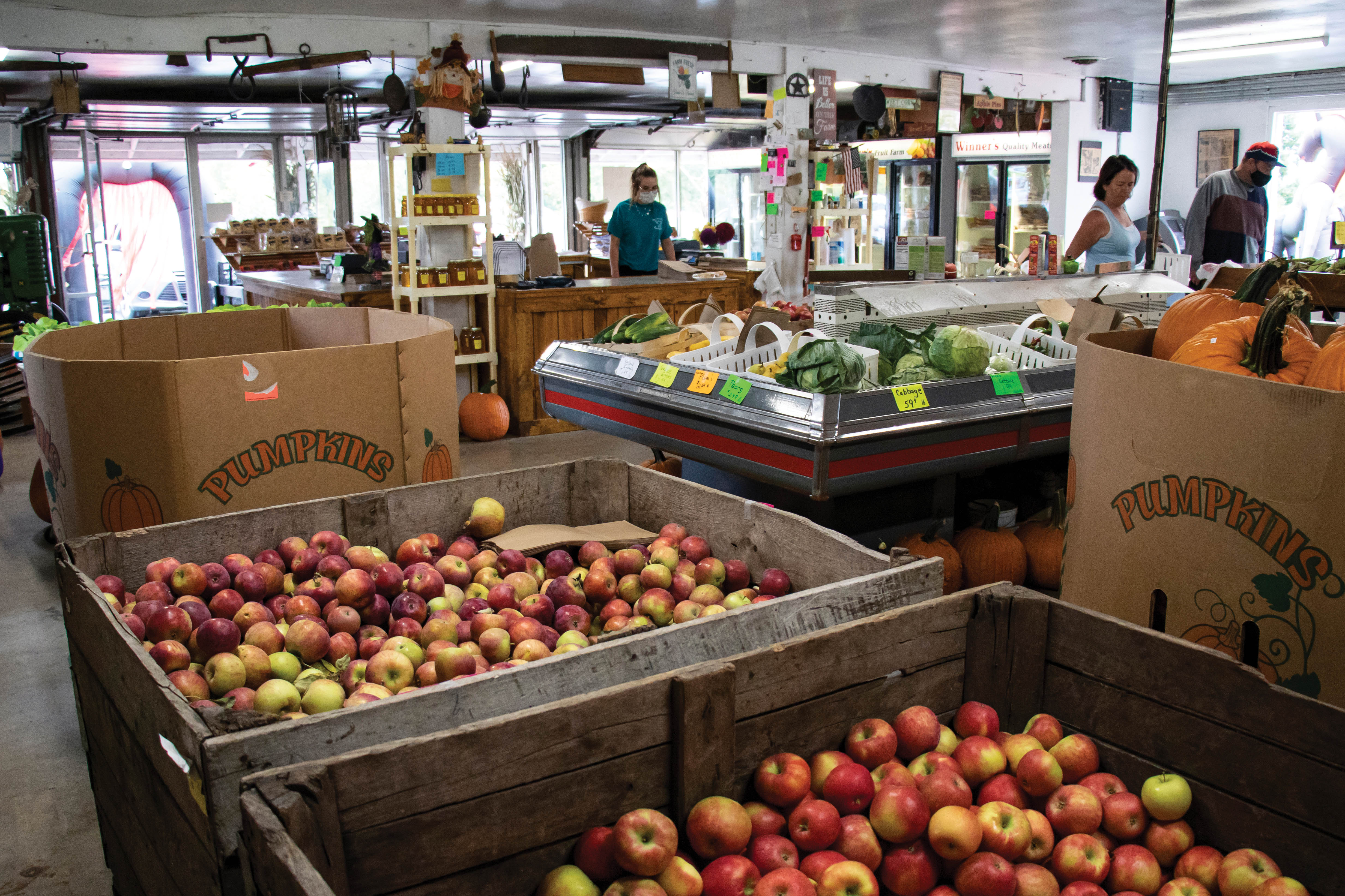 “We do it to carry on what Mom and Dad built,” Glenn said. “This is where we grew up.”
“We do it to carry on what Mom and Dad built,” Glenn said. “This is where we grew up.”
However, the challenges of thin profit margins, long hours, hard labor and the jack-of-all-trades skills needed to juggle the varied aspects of farming and retail have so far dissuaded any in the next generation from continuing the tradition.
Several family fruit farms in the area that operated when Monnin’s opened are gone, along with many others across Ohio.
In southern Ohio, for instance, one Scioto County farm supplies apples for the Jackson Apple Festival, which was suspended this year. There were once 20 fruit farms in Jackson County, but none remain, said Paul Fuhrmann, of Fuhrmann Orchards in Wheelersburg. He is a Produce Marketing Association director and Scioto County Farm Bureau member.
Besides good sales, the pandemic had a silver lining for Fuhrmann. The shutdowns and remote learning enabled some of his five children to help at various times during the busy growing season. One son plans to return to the farm after graduating next spring with a degree in sustainable agriculture.
Perhaps growing demand for fresh and local will give a needed boost to fruit farms after the pandemic, said Cathy Pullins, a Champaign County Farm Bureau member.
In recent years many customers have been coming several times a week to buy just enough for a day, Glenn said. Along with freshness, u-pick appeals to those concerned with the source of their food. “If they pick it themselves, they know exactly where it came from,” he said.
Add to this agri-entertainment. In the 1990s people started coming more for the farm experience than picking bushels of fruit, Glenn said. Today people bring their children, who love wandering in the trees to pick a few apples and have a picnic. He said, “They just want their kids to know where their food comes from.”
This summer Monnin’s added two new “venues” — crowd-pleasing sunflower fields for photo ops. The one-acre fields helped visitors maintain social distance, but some people came late in the day for sunset pictures, making the Monnins’ hours even longer.
Extra work, yes. But Glenn said, “You love to do it, and you love to make people happy.”
Apparently what you sow you’ll reap. Customers tell them, “I love it when you open. I hate it when you close.”
Not many business owners harvest that kind of loyalty.


Members have three ways to apply: contacting a certified agent, calling 833-468-4280 or visiting ohiofarmbureauhealthplans.org.
Read More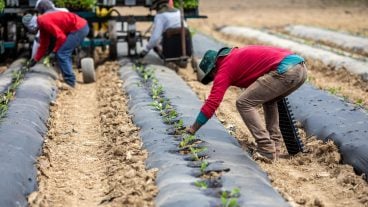
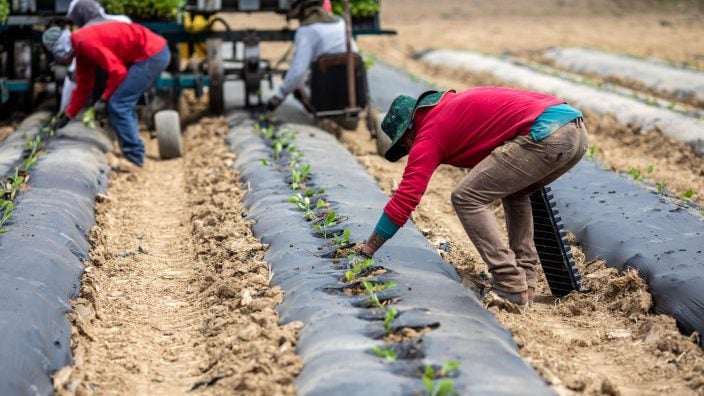
A recent state budget fix and a federal rule reform to H-2A have resulted in some relief for farmers who use the guest worker program.
Read More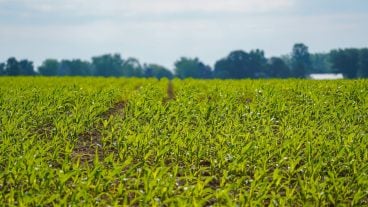
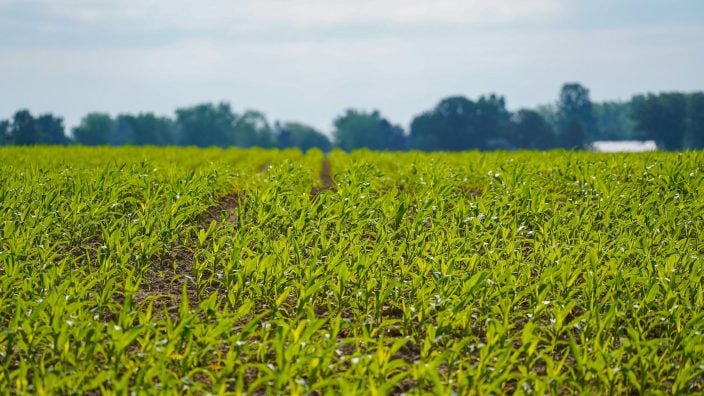
Ohio Farm Bureau advocated for a change in the law to allow family members and employees to handle pesticides while under the supervision of a licensed applicator. The rules around HB 10 are being finalized.
Read More
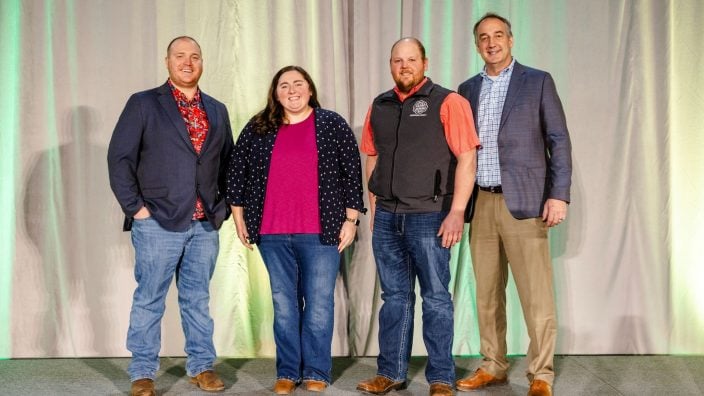
Lincoln Deitrick was named the Outstanding Young Farmer, Denver Davis won the Excellence in Agriculture Award, and Margaret Houts won the Discussion Meet.
Read More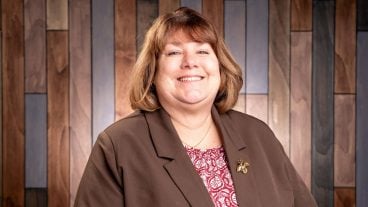
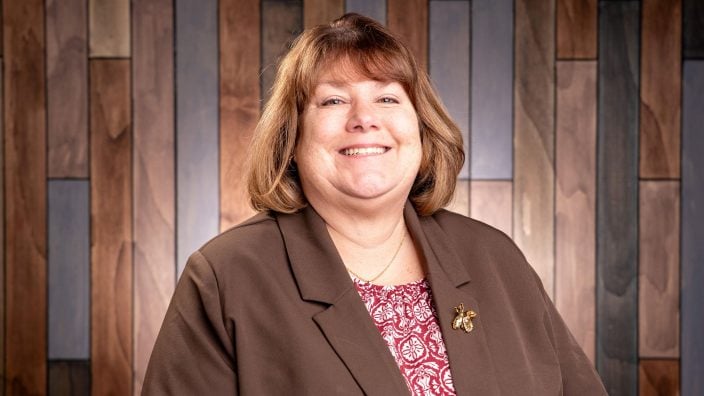
Michelle Downing of Franklin County has been named finance director of county operations for Ohio Farm Bureau.
Read More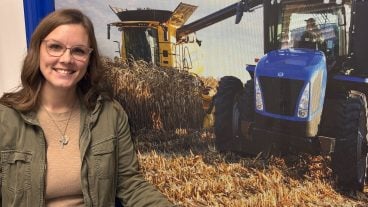
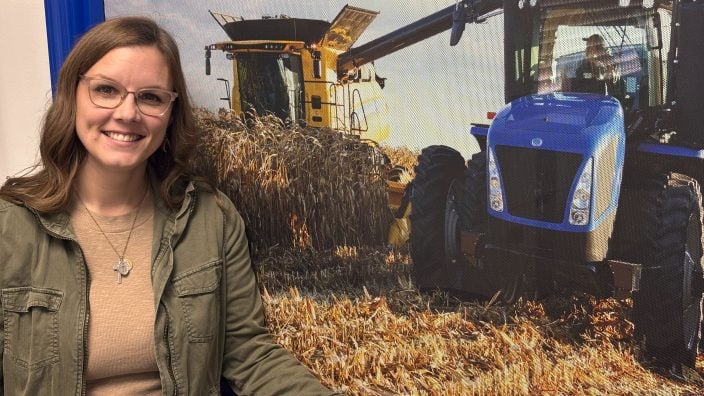
Remember why you joined Farm Bureau and find others that want to join for the same reasons. ~ Alicia Weaver
Read More

Four property tax reform bills were signed into Ohio law at the end of 2025. Ohio Farm Bureau Associate General Counsel Leah Curtis breaks down the bills and what the changes mean for Ohioans.
Read More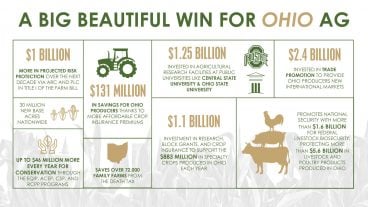
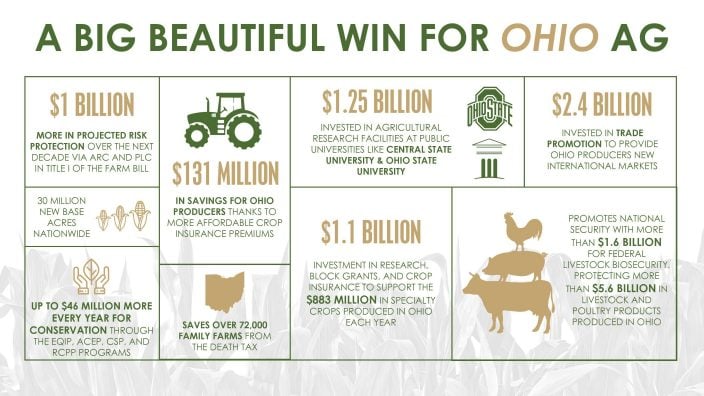
Overall, $65.6 billion from this aid package is projected to increase agriculture-focused spending over the next decade.
Read More
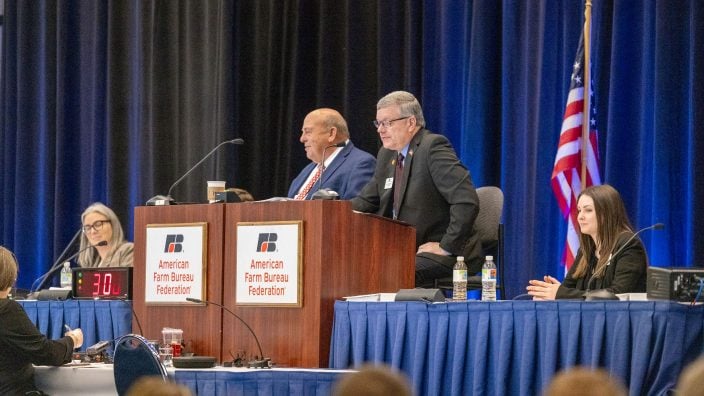
Ohio Farm Bureau brought forth 10 policies to be voted upon by delegates at the American Farm Bureau Annual Convention in Anaheim earlier this week, and all 10 were approved as national policy.
Read More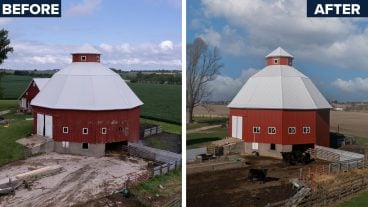
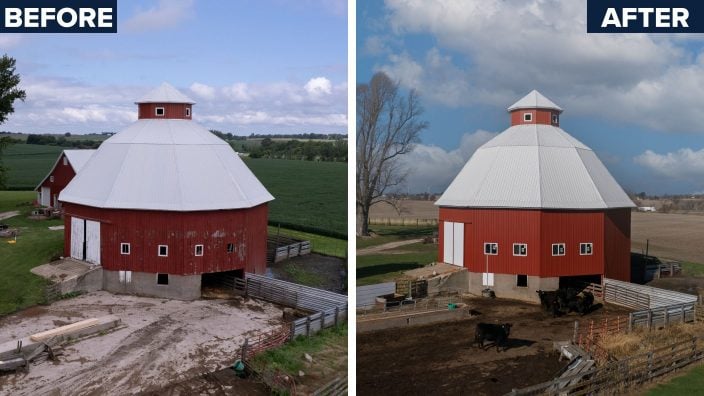
For property owners with aging post-frame buildings, the new year is an ideal time to rethink the future of your pole barn.
Read More